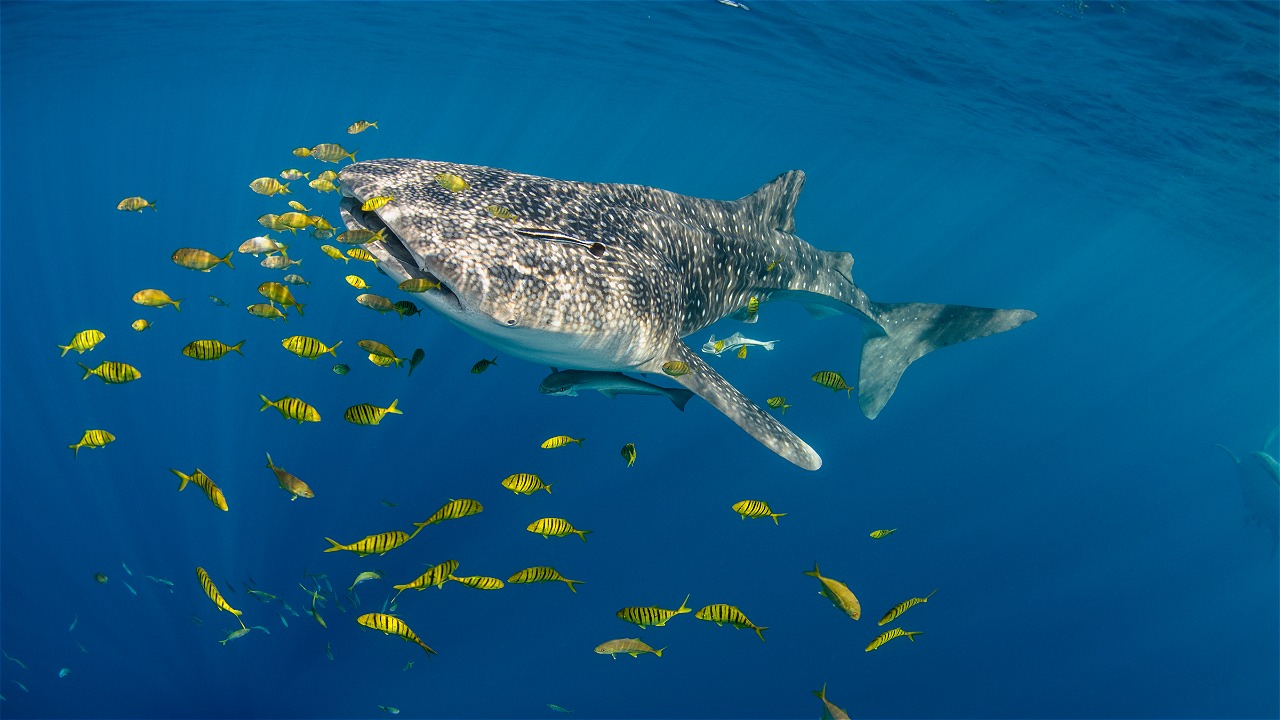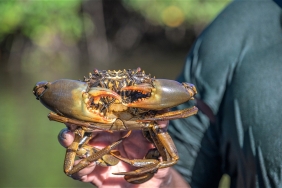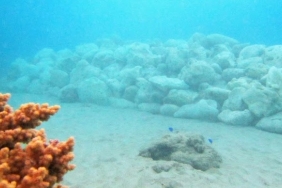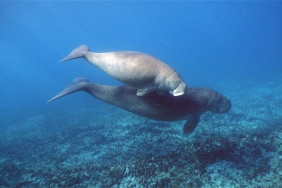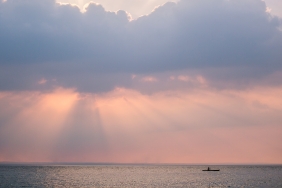POPULATION MONITORING STUDIES OF WHALE SHARK IN CENDRAWASIH GULF
By Ninish Fajrina
The results of whale shark (Rhincondon Typus) population monitoring in Taman Nasional Teluk Cendrawasih (TNTC) are presented in hotel Oria, Jakarta in Thursday last week (27/3). The exposure is packaged in a workshop in order to spread the study results and the first step in initial follow up of whale shark protection. In addition, the workshop was attended by representatives from the Ministry of Maritime Affairs and Fisheries (KP3K, KKJI, P4KSI), Central Substantial TNTC, local government Nabire Region, WWF-Indonesia, and the media, is also an occasion of socialization about the status of full protection for whale sharks and launching of technical guidelines in monitoring populations and interaction with whale sharks.
This workshop that consists of three sessions gave a lot of information regarding the happening condition in TNTC and things that they have done to protect the biggest shark in the world. Whale shark is often be seen in TNTC area. This fact became the reason why the study is being held in that area since May 2011, collaborates with the center of TNTC, Hubbs SeaWorld Research Institute, Univeristas Negeri Papua, and Institut Pertanian Bogor. There are 14 satellite tag units have been installed in 14 whale sharks to mapping the horizontal and vertical movements. Moreover, more than 90 whale sharks have been identified through photo identification (Photo ID) and Radio Frequency Identification (RFID).
The big size matter, the growth, and the slow growth to gain mature age of sperms cause whale shark very fragile with threaten. In May 20th 2013, the Ministry of Maritime Affairs and Fisheries (KKP RI) issued a full protection status for whale sharks through the decision of minister of maritime and fisheries (KepMen KP) No.18 in 2013. Previously, in 2002, Convention on International Trade in Endangered Species of Wild Fauna and Flora (CITES) also categorized whale shark into Appendix II, namely species whose population is considered threatened if its trade not governed by strict rules.
The experience of WWF-Indonesia for 3 years in developing the efforts of population monitoring studies as in whale shark conservation efforts in TNTC, expected to urge the other whale sharks area in Indonesia to start to care about and contribute to the conservation efforts for this gentle giant.
Translated by : Thalia Shelyndra

